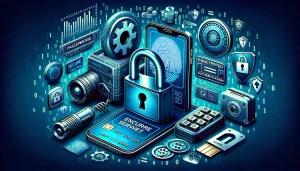Understanding the Importance of a Digital Footprint
Your Online Trail: More Than Meets the Eye
Picture this: every click, comment, and post you make is like leaving breadcrumbs in a digital forest. This trail—your digital footprint—is a reflection of you, your personal brand, and your trustworthiness as a freelancer. But let’s be honest: Have you thought about who’s following your trail? Potential clients are out there, analyzing every crumb to decide if they want to work with you.
Your online presence isn’t just a marketing tool; it’s the key to unlocking new gigs. A professional-looking LinkedIn profile or spotless testimonials on a portfolio site can scream, “Hire me!” But an unflattering tweet from 2013? That might whisper, “Maybe not.”
Here’s why your footprint matters more than you think:
- It’s the first impression you make—often before you even say hello.
- It builds trust (or shatters it) with future collaborators.
- It can impact how potential clients see your reliability and skillset.
Whether intentional or accidental, every post forms part of your story. So the real question is—are you in charge of the narrative?
Best Practices for a Secure Online Presence

Guarding Your Online Castle: Simple Yet Powerful Habits
Picture your online presence as a gleaming castle. Strong walls, secure gates, vigilant guards. Without these, even the most dazzling fortress is vulnerable. So how do you protect your digital domain as a freelancer? By adopting smart habits that blend caution with practicality.
First, let’s talk passwords—the bedrock of all security. A password like “123456” is akin to leaving your castle gate wide open! Aim for long, unique keys filled with a mix of characters. Better yet, use a password manager to keep them all locked away safely.
Want to add another moat to your defenses? Two-factor authentication (2FA) should be your go-to. Whether it’s via app or SMS, this extra step can stop would-be intruders in their tracks.
- Think twice before clicking on unexpected links or attachments—phishing scams are lurking everywhere.
- Regularly update your software and devices; outdated systems are hacker magnets.
- Use secure Wi-Fi connections, especially when freelancing from coffee shops or coworking spaces.
These small daily moves make an enormous difference. Each action is like fortifying your castle walls, making your online presence truly impenetrable.
Control Who Enters: Managing Permissions Wisely
Here’s a scary thought: not everyone who knocks on your castle door has good intentions. As a freelancer, the tools and platforms you work with often ask for permissions—access to files, contacts, or even personal data. Don’t just click “Accept” blindly; instead, act like a discerning gatekeeper.
Take social media, for instance. Do all apps need access to your location, photos, or microphone 24/7? Absolutely not. Dive into your device settings and audit who’s been given what. Revoke access if it feels unnecessary.
Additionally, keep an eye on collaborative tools like file-sharing services. Limit permissions to only those who truly need it. Giving “edit” access to everyone on your spreadsheet is like letting strangers rifle through your castle treasury.
Remember: it’s your digital kingdom. Be protective of your turf, and don’t hand out keys without scrutiny.
Essential Tools for Protecting Your Digital Identity

Guarding Your Digital Kingdom
Imagine your digital identity as the keys to a vault holding your most valuable treasures—your personal data, financial transactions, and even your professional reputation. Now, wouldn’t you want the best tools to guard that vault? Let’s turn your everyday devices into an impenetrable fortress.
First up, meet the unsung hero of all freelancers: the password manager. Forget those scattered sticky notes or the dreaded “forgot password” button. A solid tool like LastPass or 1Password not only generates ironclad, unique passwords but stores them securely, so you can focus on your craft—not on remembering which variation of “CoffeeLover123” you used.
Next, let’s talk about encryption. Think of it as writing a diary in a secret language nobody can decipher. Tools like ProtonMail for emails or NordLocker for file storage ensure that even if someone stumbles upon your content, it’s utterly unreadable to prying eyes.
- Virtual Private Network (VPN): Keeps snoopers off your trail by masking your IP address and encrypting your internet connection.
- Two-Factor Authentication (2FA): The modern equivalent of a deadbolt lock, adding an extra layer of security to everything from email accounts to payment platforms.
These tools aren’t tech luxuries—they’re shields in the battle for your online safety. Don’t just safeguard your work; protect your life.
Managing and Monitoring Your Digital Reputation

How to Stay in Control of Your Online Narrative
Your online reputation isn’t just a fleeting reflection—it’s the story people believe about you, often before they even meet you. Imagine it as a digital storefront: polished or messy, strategic or haphazard, it shapes how clients and collaborators perceive you. The good news? You hold the pen in this narrative.
Start by Googling yourself. Yes, really. What pops up? A glowing portfolio, or that questionable tweet from 2015? Here’s where you roll up your sleeves:
- Social media deep-clean: Remove outdated posts or anything that could misrepresent your professional brand.
- Update public profiles: Websites like LinkedIn and portfolio platforms should scream, “This is why I’m the freelancer you’re looking for!”
Why It Pays to Be Proactive, Not Reactive
Rather than waiting for a reputation crisis to knock on your door (think a bad review or accidental overshare), adopt a monitoring mindset. Tools like Google Alerts can notify you anytime you’re mentioned online, while platforms like BrandYourself help clean up past hiccups.
Remember: Reputation management isn’t about perfection; it’s about authenticity. Own your story, show your growth, and let it reflect not just your skills, but your values.
Conclusion and Next Steps for Long-Term Security

Building Habits That Protect Your Future
Securing your digital footprint isn’t just a one-time fix; it’s like nurturing a plant—you’ve got to water it often and watch out for weeds. By “weeds,” I mean those sneaky phishing attempts, outdated passwords, or unnoticed data leaks that can creep in over time. It’s not about paranoia; it’s about staying sharp in a world where cyber threats evolve as quickly as technology itself.
Start by making weekly check-ins with your online security part of your routine, like stretching after a workout. Is your laptop’s antivirus updated? Have you checked for unfamiliar logins on your accounts? These small habits keep you one step ahead.
Stay Proactive, Stay Empowered
Think of tools like VPNs and encrypted email services as shields in your freelancer toolbox—they’re there to defend what you’ve worked so hard to build. But the most powerful tool is your mindset. Freelancers are resilient by nature; treat your digital safety with the same scrappy determination you bring to landing new projects.
Staying secure doesn’t mean building walls—it’s about creating a fortress that lets only trusted allies in.





